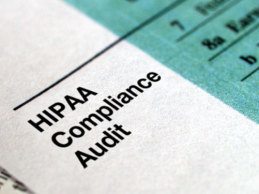U.S. healthcare companies must comply with the data security and privacy standards defined by the Health Insurance Portability and Accountability Act of 1996 (HIPAA). The purpose of the legislation is to safeguard the privacy and security of protected health information (PHI) and electronic protected health information (ePHI). Failure to comply with HIPAA regulations can result in serious financial fines and reputational damage.
What Determines HIPAA Compliance?
Organizations
Read More
PHI
How Hospitals Can Safely & Effectively Continue Patient Care Amid Rising Cybersecurity Risks
The world we live in is becoming increasingly integrated, and as it does, the amount of data also increases. It is estimated that 2.5 quintillion bytes – that’s 2,500,00,00,000 million, for perspective – are created, captured, and shared every day, and experts predict that number will grow exponentially in the coming years. Estimates show that the healthcare industry generates about 30% of the world’s data volume. That number is expected to reach a compound annual growth rate of 36% within the
Read More
Top Security Certifications Required for Data Protection
How secure is your data? If your organization does not have the right security certifications in place, it’s not a matter of if a data breach will occur – but when. A lack of regulatory compliance, network and technical vulnerabilities, unencrypted information, unsecured mobile devices, and weak credentials all play a part in putting a healthcare organization at risk for a data breach.
Today, the cost of a data breach comes with a hefty price tag – an average of $9.44 million in the
Read More
FHIR Adoption and Implementation Challenges
The Fast Healthcare Interoperability Resources (FHIR) standard was introduced by HL7 in 2014 as a significant replacement for the HL7 V2 and V3 standards. An open standard called FHIR, which was initially drafted in 2011 makes it easier than ever for legacy systems and new apps to exchange data. FHIR was created to not only increase communication efficiency and interoperability compared to earlier standards but also to facilitate implementation by giving clear specifications and allowing
Read More
Ushur Lands $50M for Customer Experience Automation Platform
View ClaimsView Claim
What You Should Know:
- Ushur, the leader in AI-powered Customer Experience Automation™ (CXA), has raised a $50M Series C funding round led by Third Point Ventures with participation from existing investors Iron Pillar, 8VC, Aflac Ventures and Pentland Ventures.
The company plans to use the funding to expand Ushur’s experience automation portfolio, developing new innovations in AI and moving into new regions and industry verticals.
Healthcare Automation
Read More
5 Things Every Smart Operating Room Should Prioritize – Surgery
The healthcare industry is in the middle of deep digital transformation across every aspect of the patient journey. Technology has always been important in healthcare, but COVID-19 has accelerated advancements, improving the way care is delivered. The pandemic also increased patient interest in being more involved in their healthcare decisions. And when patients are more involved, they are typically more satisfied with their experience and have better health outcomes. From remote patient
Read More
The Health Data Interoperability Highway Is Coming. Is Your Organization Ready?
Not many of us remember a time when there weren’t interstates widely available to help us get to where we need to go. Winding roads and sleepy towns can be nostalgic, but they’re not great time savers when time is of the essence.
At a macro level, The Trusted Exchange Framework and Common Agreement (TEFCA) promises to be the interoperability superhighway for healthcare data, speeding information on patients from care facility and care provider — regardless of location or healthcare entity —
Read More
Top 10 Health Technology Hazards in 2023 to Watch
What You Should Know:
- ECRI, the nation's largest non-profit patient safety organization, names communications gaps with recalls of home-use medical devices as the nation’s most pressing health technology safety issue for 2023.
- ECRI’s Top 10 Health Technology Hazards for 2023 list identifies the potential sources of danger that will warrant the greatest attention for the coming year and offers practical recommendations for reducing
Read More
Cybersecurity: Is SOC2 Worth The Hype for Healthcare Organizations?
The healthcare industry has always been a prominent target for cybercriminals worldwide. They can access high-value patient PHI/PII data and use it maliciously to disrupt the patient’s treatment routine and bring down uptime, which is critical. It has repercussions on patients, doctors, hospitals, and everything associated with the healthcare ecosystem.
Information security is a reason for concern for all organizations, including those that outsource key business operations to third-party
Read More
4 Data Security Challenges for Healthcare Organizations in 2022
The healthcare industry has always been a prominent target for cybercriminals worldwide. They can access high-value patient PHI/PII data and use it maliciously to disrupt the patient’s treatment routine and bring down uptime, which is critical. It has repercussions on patients, doctors, hospitals, and everything associated with the healthcare ecosystem.
Data security is one of the most pressing challenges facing the healthcare industry today. Cybercrime’s recent surge has led many healthcare
Read More









